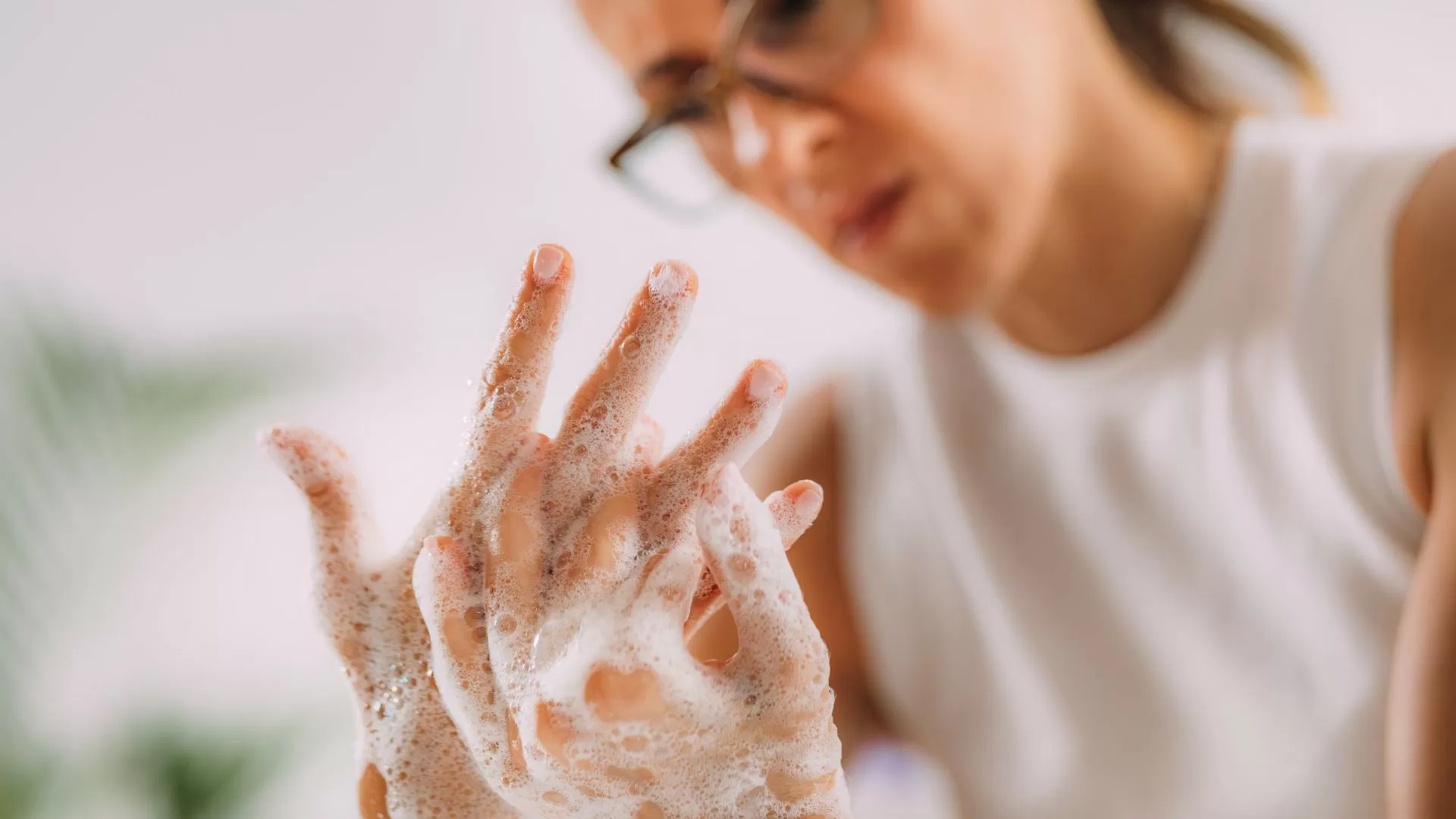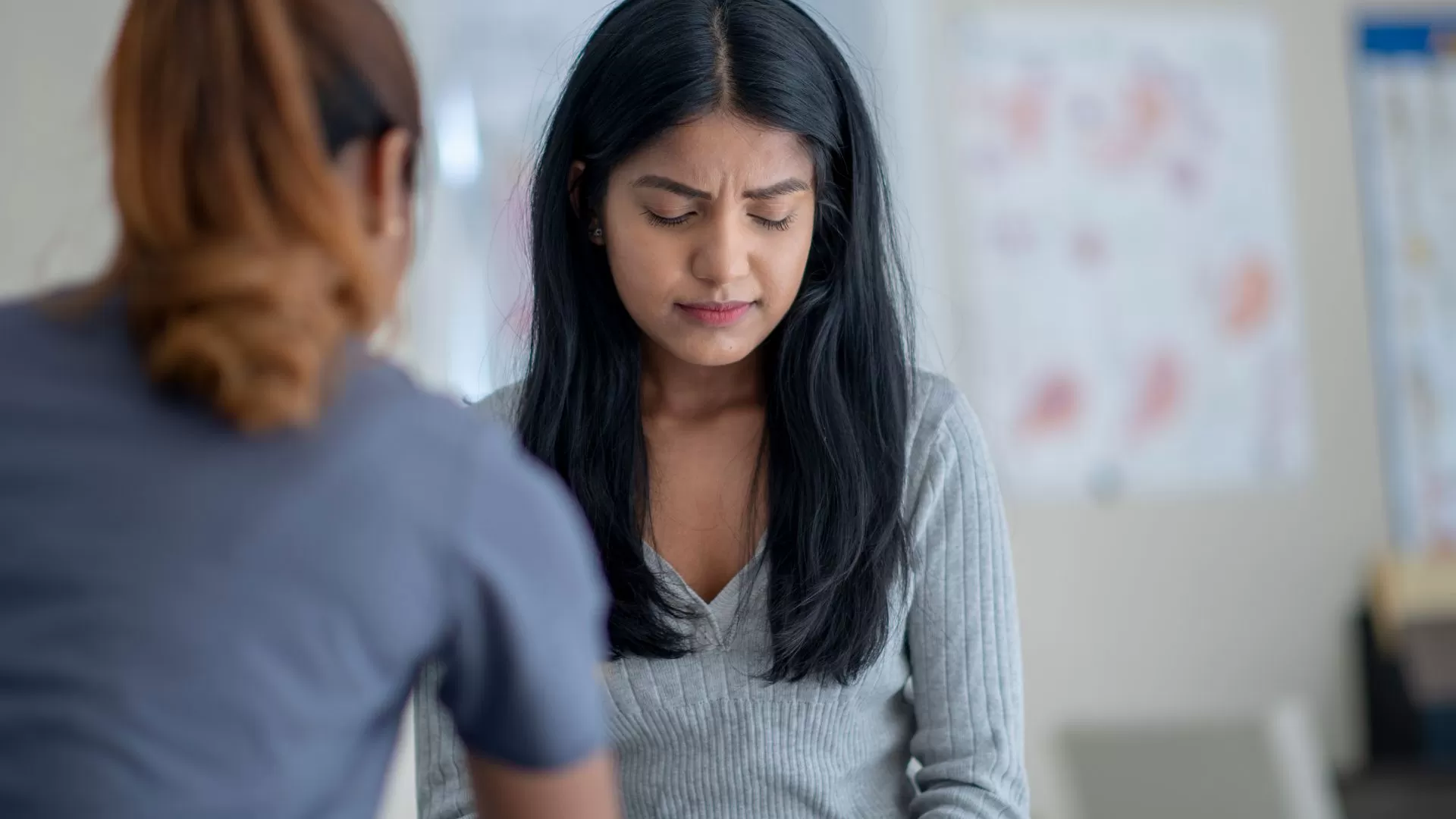Women's Mental Health Counselling Therapy for OCD
We’re here to help you understand that women’s mental health counseling for OCD is specially designed to tackle the distinct challenges we face. Our approach combines trauma-informed care and Cognitive Behavioral Therapy (CBT), which empowers us to manage intrusive thoughts and compulsive behaviors effectively. We focus on building resilience and emotional strength, using techniques like mindfulness and exposure therapy. No matter what stage of life you’re in, whether steering through postpartum struggles or life changes, our supportive environment fosters healing and growth. Discover how this tailored therapy can make a difference in your journey toward wellness.

About Women’s Mental Health Counselling Therapy
Women’s Mental Health Counselling therapy is an essential resource that helps us understand and address the unique challenges women face, particularly when coping with conditions like OCD. This type of therapy focuses on the specific needs of women, recognizing that anxiety disorders, including obsessive-compulsive disorder, often manifest differently for us.
Through women’s therapy, we can explore effective coping strategies tailored to our experiences. Therapy for OCD may incorporate trauma-informed care, ensuring a safe space where we can discuss our thoughts and feelings without judgment. This approach fosters emotional well-being and empowers us to take control of our mental health.
Additionally, mindfulness for OCD is often integrated into our sessions, teaching us techniques to manage intrusive thoughts and anxiety effectively. By utilizing women’s counseling services, we gain access to skilled professionals who understand the intricacies of our mental health needs.
Ultimately, engaging in women’s mental health counselling therapy not only aids in managing OCD but also equips us with tools to navigate life’s challenges, fostering resilience and a deeper connection to ourselves. Together, we can work towards a healthier, more balanced emotional state.
Understanding Women’s OCD and Mental Health Challenges
Recognizing the unique ways OCD affects us is essential in understanding the mental health challenges many women face, as our experiences often intertwine with societal pressures and personal expectations. Obsessive-compulsive disorder can manifest through various OCD symptoms, including intrusive thoughts and compulsive behaviors that can feel overwhelming. These challenges are often exacerbated by the emotional weight of societal roles and expectations, making mental health counseling an invaluable resource in our journey towards healing.
Women often seek women’s mental health counselling therapy to find emotional support tailored to our experiences. Through psychotherapy for OCD, we can explore effective strategies like exposure and response prevention, which helps us confront our fears in a safe, guided environment. This approach not only aids in anxiety management but also plays a significant role in trauma recovery for many of us.

The Role of Cognitive Behavioral Therapy (CBT) in Treating OCD in Women
Cognitive Behavioral Therapy (CBT) has proven to be a powerful tool for many of us dealing with OCD, offering practical strategies to challenge and change the thought patterns that fuel our anxiety. In our journey toward understanding obsessive-compulsive disorder, we’ve found that CBT plays an essential role in our OCD treatment. This approach helps us identify and confront our obsessive thoughts, gradually reducing the emotional distress they create.
One of the key components of CBT is exposure therapy, which encourages us to face our fears in a controlled manner. By doing so, we learn distress tolerance and can better manage our compulsive behaviors over time. It’s reassuring to know that we’re not alone in this struggle; women’s mental health support through CBT acknowledges and addresses the unique challenges we face.
As we engage in this therapeutic process, we’re empowered to reclaim our lives from the grip of OCD. By working collaboratively with trained professionals, we can develop coping strategies that promote mental health and resilience. Together, we can challenge the patterns that hold us back and embrace a healthier, more fulfilling life.
Managing OCD Symptoms in Women: Intrusive Thoughts and Compulsive Behaviors
Managing OCD symptoms can feel overwhelming, especially when intrusive thoughts and compulsive behaviors start to take over our daily lives. We often find ourselves caught in a cycle of obsessions that fuel our anxiety, leading us to perform compulsions in an attempt to regain control. It’s crucial to recognize that we’re not alone in this struggle.
Mental health therapy, particularly psychotherapy for women, can be incredibly beneficial. Through behavioral therapy for OCD, we can learn effective strategies to manage our intrusive thoughts and compulsive behaviors. Anxiety counseling helps us understand the roots of our stress and equips us with tools for emotional regulation.
Implementing stress management techniques can also be a game-changer. Simple practices like mindfulness, deep breathing, and journaling can create space for us to process our feelings without succumbing to compulsions. By actively participating in our healing journey, we can gradually reduce the grip of OCD on our lives.

Addressing Postpartum OCD and Anxiety in New Mothers
How can new mothers navigate the challenges of postpartum OCD and anxiety while adjusting to their new roles and responsibilities? It’s crucial to acknowledge the overwhelming feelings that can arise during this period. Many of us might experience symptoms of postpartum depression, anxiety, and obsessive-compulsive disorder (OCD), making it hard to find balance. Compulsive checking and reassurance seeking can become our attempts to manage these intrusive thoughts, but they can also take a toll on our emotional health.
To support our maternal mental health, we should prioritize self-care and seek out psychotherapy tailored to our unique experiences. Engaging in trauma recovery programs can also provide tools and strategies to cope with the complexities of motherhood. It’s important to remember that we’re not alone in this journey. By reaching out for help and connecting with others who understand, we can foster a supportive environment that promotes healing.
Together, we can navigate the challenges of postpartum OCD and anxiety, ensuring that our emotional well-being remains a priority as we embrace our roles as mothers. Let’s encourage open conversations about these issues and empower each other to seek the help we need.
Enhancing Emotional Well-Being and Self-Esteem Through OCD Counseling
As we work to overcome the challenges of postpartum OCD and anxiety, enhancing our emotional well-being and self-esteem through specialized counseling can be a transformative step in reclaiming our sense of self. By focusing on our psychological well-being, we can learn effective coping mechanisms that empower us to navigate the complexities of obsessive-compulsive disorder.
In therapy, techniques like ERP therapy (Exposure and Response Prevention) help us confront our fears gradually, reducing anxiety relief and fostering emotional resilience. We’ll also explore mindfulness practices that ground us in the present, helping to alleviate feelings of depression and anxiety. This holistic approach not only addresses our symptoms but also cultivates self-esteem, allowing us to recognize our strengths and capabilities.
As we engage in this therapeutic journey, we’re not just battling OCD; we’re nurturing our women’s emotional health. We discover that our experiences, though challenging, can lead to profound personal growth. Together, we can create a supportive community where we uplift one another, sharing insights and strategies that enhance our emotional well-being. Ultimately, we reclaim our identities, embracing a healthier, more fulfilled version of ourselves.
Trauma Recovery and OCD: A Holistic Approach for Women
Maneuvering the intersection of trauma recovery and OCD can feel overwhelming, but embracing a holistic approach allows us to heal and reclaim our lives as women. By integrating trauma therapy with mindfulness-based therapy, we can address the roots of our emotional trauma while effectively managing our OCD diagnosis.
In women’s support groups, we share our experiences and find strength in our collective journeys. These connections foster resilience, reminding us that we’re not alone. Holistic therapy emphasizes treating the whole person, addressing both our compulsive behaviors and the underlying issues contributing to our mental health struggles.
As we navigate emotional trauma recovery, we can explore various mental health care options, including depression treatment that aligns with our unique needs. This all-encompassing approach empowers us to develop coping strategies that enhance our overall well-being.

Hormonal Balance and Its Impact on OCD in Women’s Mental Health
Understanding the role of hormonal balance can greatly enhance our approach to managing OCD in women, especially as we recognize how fluctuations in hormones can influence our mental health and exacerbate symptoms. Many of us experience shifts in mood and behavior linked to hormonal changes, which can intensify obsessive-compulsive disorder symptoms. By acknowledging this connection, we can access valuable mental health resources tailored to women’s issues.
Gender-specific therapy often addresses these hormonal influences, helping us explore how they relate to perfectionism and stress relief. As we engage in discussions about mood stabilization, we can better understand the impact of our hormonal cycles on emotional recovery. This knowledge empowers us to develop strategies that promote mental wellness, enhancing our coping mechanisms.
It’s essential to remember that we’re not alone in this journey. Seeking support from professionals who understand the unique challenges we face can be a significant step toward healing. By prioritizing hormonal balance, we’re taking an important step in managing OCD effectively and nurturing our overall mental health. Together, we can navigate these complexities and work towards a more balanced, fulfilled life.
Relationship Issues and OCD: Managing Emotional Stress in Women’s Therapy
How can we effectively navigate the emotional stress that relationship issues often bring to women dealing with OCD? These challenges can be overwhelming, but through counseling for women, we can foster women’s empowerment and promote personal growth. It is crucial to understand how OCD can exacerbate relationship tensions, leading to increased anxiety and emotional stress.
In our therapy sessions, we focus on self-awareness, helping women identify and articulate their feelings. This understanding lays the groundwork for developing healthier communication patterns with partners. Utilizing behavioral therapy techniques, we can address OCD-related behaviors that may be impacting relationships, providing strategies for stress reduction.
We also emphasize the importance of mental health advocacy, encouraging women to prioritize their mental well-being. By building resilience and coping mechanisms, we can transform relationship issues into opportunities for growth. Together, we can create a supportive environment where women feel empowered to express their needs and set boundaries, ultimately leading to healthier relationships.
Navigating these complexities isn’t easy, but with the right tools and support, we can manage emotional stress and foster healthier connections.
Supporting Women with Contamination OCD: Managing Fears and Rituals
Contamination OCD can be particularly challenging for women, as it often manifests through intense fears and compulsive rituals that disrupt daily life and relationships. We recognize that contamination fears can feel overwhelming, leading to compulsive cleaning and ritualistic behavior that may not only consume our time but also isolate us from loved ones.
Navigating the obsessive fear of germs can be exhausting, and reassurance seeking behaviors often provide only temporary relief. It’s important to recognize these OCD triggers and work together to develop healthier coping strategies. By addressing our mental rituals, we can gradually reduce the grip of OCD on our lives.
Women’s empowerment plays a significant role in this journey. We can support each other by sharing experiences and strategies that help manage contamination OCD. Engaging in exposure therapy with a trained therapist can also help us confront our fears in a safe environment, allowing us to reclaim our daily routines.
Stress Management and Anxiety Relief in Women with OCD
Managing stress and anxiety is crucial for us as women dealing with OCD, as these challenges can often intensify our symptoms and hinder our overall well-being. By focusing on effective stress management techniques, we empower ourselves to better handle intrusive thoughts and compulsive behaviors that accompany obsessive-compulsive disorder.
Mindfulness meditation is one powerful tool we can utilize for anxiety relief. It helps us stay grounded, allowing us to observe our thoughts without judgment. This practice not only cultivates a sense of calm but also promotes emotional resilience, essential for maintaining our mental health.
Additionally, engaging in depression counseling can support our journey toward trauma healing. It provides a safe space to explore our feelings and develop coping strategies tailored to our unique experiences.
Women’s Support Groups for OCD: Building Resilience and Emotional Strength
Joining women’s support groups for OCD can be a transformative experience, as they offer a nurturing environment where we can share our struggles and build resilience together. In these supportive spaces, we empower each other to confront our OCD and the intrusive thoughts that often accompany it. By connecting with others facing similar challenges, we can cultivate emotional strength and foster a sense of community support.
These groups provide a platform to exchange coping strategies that have helped us manage our anxiety and improve our mental health. When we share our experiences, we not only gain insight but also remind ourselves that we’re not alone in this journey. Each story we hear reinforces our collective resilience, helping us to navigate the complexities of OCD with a sense of solidarity.
Moreover, women’s empowerment is at the heart of these gatherings. We’re encouraged to embrace our vulnerabilities while also celebrating our victories, no matter how small. Together, we can learn to advocate for our mental health, develop healthier coping mechanisms, and ultimately find strength in our shared experiences. Let’s continue to uplift each other as we face OCD together.
Work-Life Balance and Burnout Prevention for Women Managing OCD
Striking a healthy work-life balance is essential for us as women maneuvering the challenges of OCD, as it can greatly reduce the risk of burnout and enhance our overall well-being. Managing obsessive-compulsive disorder often means dealing with intrusive thoughts and repetitive behaviors that can complicate our daily lives. By prioritizing balance, we empower ourselves to create a more sustainable and fulfilling routine that supports our mental health.
To achieve this balance, we can set realistic boundaries at work and home. It’s vital to recognize when our anxiety management techniques are becoming overwhelmed by responsibilities. Taking time for self-care and wellness activities helps us recharge and prevents burnout. This means scheduling breaks, pursuing hobbies, and connecting with supportive friends or groups who understand our journey.
Women’s empowerment is about reclaiming our time and energy. By focusing on what genuinely matters to us, we can find fulfillment in both our personal and professional lives. Remember, it’s okay to ask for help when we need it. Together, let’s commit to nurturing our mental health and fostering a work-life balance that honors our unique experiences with OCD.
Mindfulness Meditation and Relaxation Techniques for OCD Management
Mindfulness meditation and relaxation techniques can be powerful tools for us as women maneuvering the challenges of OCD, helping to ground our thoughts and reduce anxiety in our daily lives. By incorporating mindfulness meditation into our routines, we can cultivate a sense of present awareness that allows us to observe intrusive thoughts without judgment. This practice fosters self-acceptance and reinforces our self-worth, essential components of women’s empowerment.
Additionally, relaxation techniques, such as deep breathing exercises or progressive muscle relaxation, can help alleviate the tension often associated with compulsive behaviors. These strategies promote mental wellness and create space for holistic wellness in our lives. As we navigate the complexities of obsessive-compulsive disorder, embracing these tools can enhance our resilience and emotional strength.
Navigating Life Transitions and Identity Issues in Women with OCD
Steering through life changes can be particularly challenging for us as women with OCD, as these alterations often bring about heightened anxiety and uncertainty that can affect our sense of identity. Whether we’re experiencing motherhood, career shifts, or loss, these life changes can trigger intrusive thoughts and compulsive behaviors, making it difficult to connect with our true selves.
In managing these complexities, it’s vital to focus on women’s empowerment. Engaging in relationship counseling can help us articulate our feelings and understand how these changes impact our mental health. When we seek support, we’re taking a significant step toward embracing our identities, even amid uncertainty.
For those of us facing perinatal mental health issues, acknowledging our experiences can be transformative. Grief counseling can also provide a safe space for us to process losses that have shaped our identities. By addressing these identity issues together, we can create a supportive community that uplifts each other through every twist and turn.
Ultimately, we deserve to feel empowered and grounded, regardless of the life changes we face. Understanding our OCD and its impact on our identities is an important part of our journey toward healing and self-acceptance.
Contact Us for Expert Women’s OCD Counseling Services
As we navigate the complexities of our identities and mental health, reaching out for expert women’s OCD counseling services can provide the guidance and support we need to regain control and find peace. Understanding obsessive-compulsive disorder is essential, as intrusive fears and compulsive behaviors like hand washing or checking rituals can feel overwhelming. We might experience contamination OCD or harm OCD, leading to constant rumination and mental compulsions that disrupt our daily lives.
In therapy, we can explore these challenges in a safe and supportive environment. Our counselors specialize in women’s empowerment, offering tailored strategies to help us confront our fears and diminish the hold OCD has on us. Whether we struggle with specific compulsions or broader anxiety, expert guidance can illuminate paths toward healing. Contact us today!

Frequently Asked Questions
How Can I Find a Specialized Therapist for Women’s Ocd?
Finding a specialized therapist can feel overwhelming, but we can start by researching local mental health clinics or online directories. It’s helpful to look for professionals who list OCD as a focus in their practice. We should also consider reaching out to support groups; they often have recommendations. Don’t hesitate to ask questions during initial consultations to guarantee a good fit. We’re all deserving of the right support in our healing journey.
What Are the Signs That I Need Professional Help for Ocd?
When we’re struggling with OCD, recognizing the signs that we need professional help can be vital. If we find ourselves feeling overwhelmed by intrusive thoughts or compulsions that interfere with daily life, it’s a signal we shouldn’t ignore. Additionally, if our anxiety levels become unmanageable or we notice a decline in our overall well-being, reaching out for support is essential. We’re not alone in this journey, and help is available.
Is Medication Necessary Alongside Therapy for OCD Treatment?
When it comes to treating OCD, we often wonder if medication is necessary alongside therapy. While some of us find that therapy alone is effective, others may benefit from medication to help manage symptoms. It’s important to remember that everyone’s journey is unique, and what works for one might not work for another. We should always discuss our options with a healthcare professional to determine the best approach for our individual needs and circumstances.
Can Lifestyle Changes Improve My OCD Symptoms?
Absolutely, lifestyle changes can make a significant difference in managing OCD symptoms. We’ve found that incorporating regular exercise, a balanced diet, and mindfulness practices can help reduce anxiety and improve overall well-being. Establishing a consistent sleep routine is also essential. While these changes might not replace professional treatment, they can complement it. We can support each other in making these adjustments, promoting a healthier mindset and enhancing our coping strategies together.
How Do I Support a Friend or Family Member With Ocd?
Supporting a friend or family member with OCD can be challenging, but we can make a real difference. First, we should listen without judgment, letting them share their feelings and experiences. It’s important to educate ourselves about OCD to better understand their struggles. We can encourage them to seek professional help and be patient as they navigate their journey. Together, we can create a supportive environment that fosters healing and understanding.

